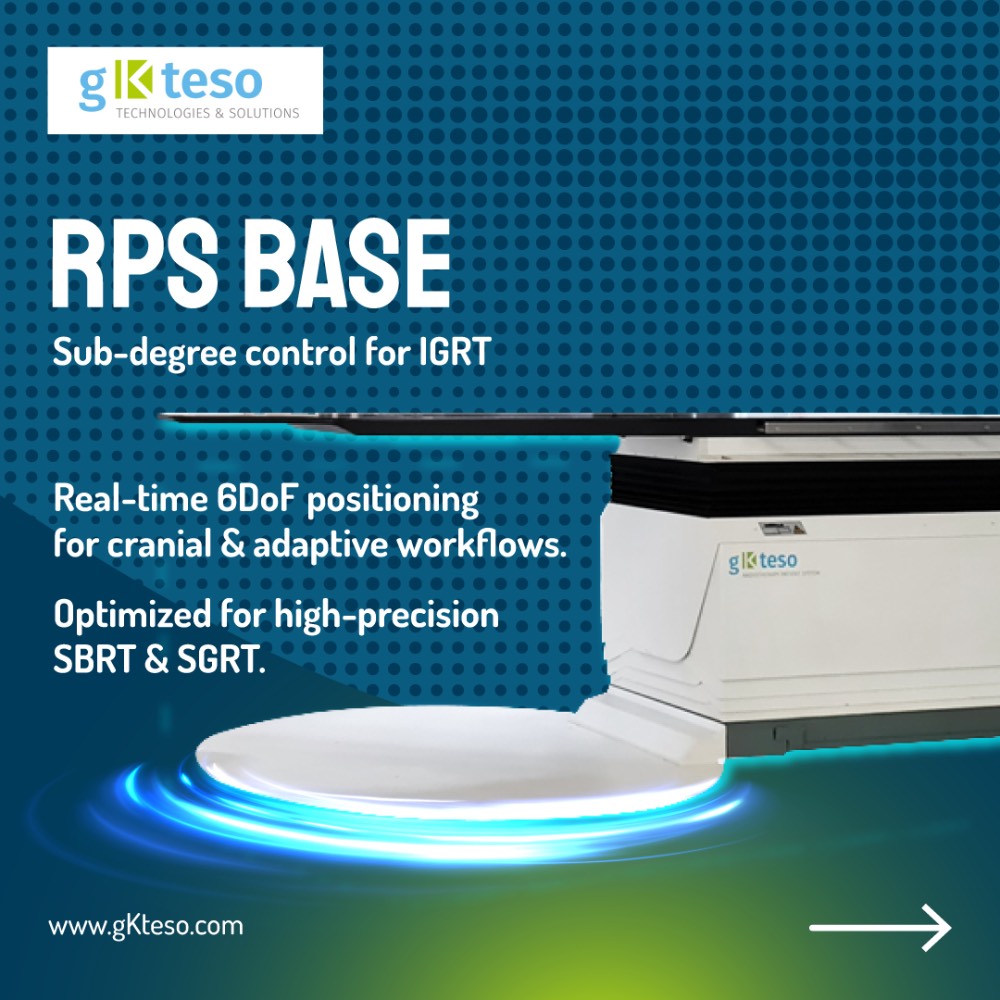RPS mini
Patient positioning for IGRT
The RPS Mini upgrades existing radiotherapy couches with 6DoF precision for high precision treatments. Its ultra-flat design fits seamlessly with standard immobilization systems, enabling submillimeter alignment right before irradiation. Perfect for upgrading basic 3 axis tables, it boosts accuracy, streamlines workflows, and brings image-guided precision to every treatment session.

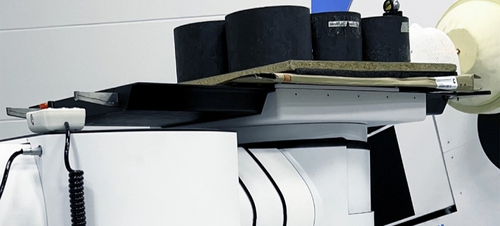
200 kg
Patient weight
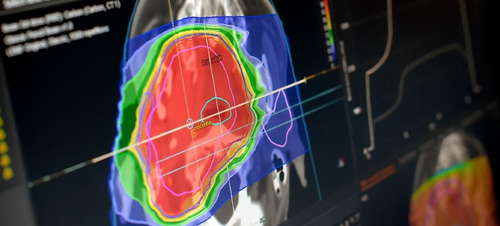
0,2 mm
Accuracy

+/-3°
Angle correction
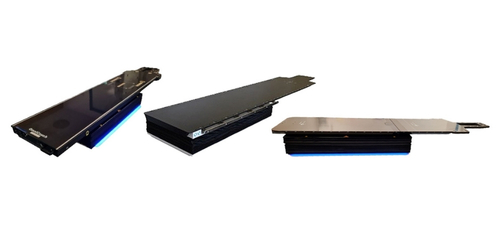
3 Types
Board options
Why Standard 3-Axis Systems limit OEM competitiveness in Radiotherapy
Modern radiotherapy demands sub-millimeter precision and workflow flexibility. Yet many LINAC setups still rely on 3-axis couches that restrict positioning capabilities and integration potential.
The following challenges illustrate why these limitations can affect system performance, market positioning, and clinical versatility for OEMs.
Limited Motion Control for Advanced Treatments
Standard couches offer only translational and vertical movement.
Without angular correction (pitch, roll, yaw), precise isocenter alignment in stereotactic or non-coplanar beam setups becomes difficult — reducing the LINAC’s suitability for high-precision applications.
Constrained Integration with Imaging and Guidance Systems
3-axis positioning limits real-time correction after image verification (e.g. CBCT).
This restricts compatibility with adaptive workflows and image-guided radiotherapy (IGRT) concepts that are now expected by clinics investing in premium systems.
Reduced Appeal in Competitive Tenders
As clinical centers increasingly demand 6DoF capability for new installations, LINAC systems without it are harder to differentiate.
Lack of motion correction options can make an OEM’s product appear less future-ready and less aligned with emerging treatment standards.
High Upgrade Costs and Downtime
Retrofitting standard tables often requires mechanical redesign or software adaptation within the LINAC architecture.
This increases engineering effort, slows time-to-market, and raises system costs — limiting flexibility in responding to new clinical requirements.
Advantages and Benefits
The RPS Mini overcomes the limitations of legacy treatment tables with integrated 6DoF correction for real-time alignment after CBCT imaging. It upgrades existing LINAC systems without major modifications, enabling submillimeter positioning, consistent geometry, and reproducible precision in stereotactic brain radiotherapy.
- Submillimeter 6DoF correction after Cone Beam CT verification
- Compact 17 cm design for seamless integration into existing couches
- Fully compatible with standard immobilization masks and baseplates
- Real-time isocenter alignment for stereotactic and image-guided workflows
- Simple plug-and-play installation for clinics and OEMs
How You Benefit
Submillimeter correction of multiple brain metastases
Ensures high-precision stereotactic radiotherapy by enabling 6DoF positional correction directly after Conebeam CT acquisition via XVI imaging.
Universal compatibility with leading immobilization systems
Supports various carbon baseplates and thermoplastic masks through an adaptable indexing interface – ideal for modular OEM configurations.
Enhanced outcomes in stereotactic treatment
Improves targeting accuracy, reduces side effects, and increases treatment success rates in IGRT through integrated motion control.
Get in Touch
Upgrade Your Couch System with 6 Degrees of Freedom
Contact us to learn how to integrate the RPS Mini for submillimeter correction and precise patient alignment in stereotactic and image-guided radiotherapy.
- Converts existing tables into 6DoF-capable platforms
- Ideal for treatment with submillimeter precision
- Over 30 years of OEM and clinical integration experience
Seamless Integration
into LINAC and Stereotactic Radiotherapy Workflows
The RPS Mini integrates effortlessly into existing radiotherapy environments and connects directly with standard LINAC systems. Its modular 6DoF platform is compatible with immobilization devices and carbon baseplates from Orfit, CQ Medical, 3C, IT-V, and Macromedics. The ultra-flat 17 cm design enables easy installation on current treatment tables without mechanical or software modification.
Fully MDR-compliant and ISO 13485 certified, the RPS Mini supports image-guided and stereotactic radiotherapy workflows, including CBCT-based verification and fractionated treatment protocols. It ensures submillimeter reproducibility and stable geometry across all fractions, making it the ideal upgrade solution for OEMs seeking to enhance precision without redeveloping their complete LINAC platform.

Our Applications
for Advanced Radiotherapy
Precise positioning is vital in stereotactic brain radiotherapy to ensure accurate dose delivery and minimize exposure to surrounding structures. The RPS Mini enables fine 6DoF correction directly after CBCT verification, making it ideal for clinics upgrading legacy LINAC systems.
• Submillimeter correction after Cone Beam CT imaging
• Compatible with all standard immobilization boards and masks
• Consistent geometry for fractionated brain treatments

Stereotactic radiotherapy

Surface guided Radiotherapy

Brain radiotherapy

Fractionated radiotherapy

Radiotherapy mask
Learn more about our projects
Discover how gKteso’s positioning solutions are applied in advanced radiotherapy systems worldwide. From prototype integration to clinical implementation, our projects demonstrate precision engineering in real treatment environments. Learn how we collaborate with OEM partners to shape the next generation of radiotherapy technology.

Learn more about …
RPS Mini
Intracranial positioning accuracy for CBCT-based workflows
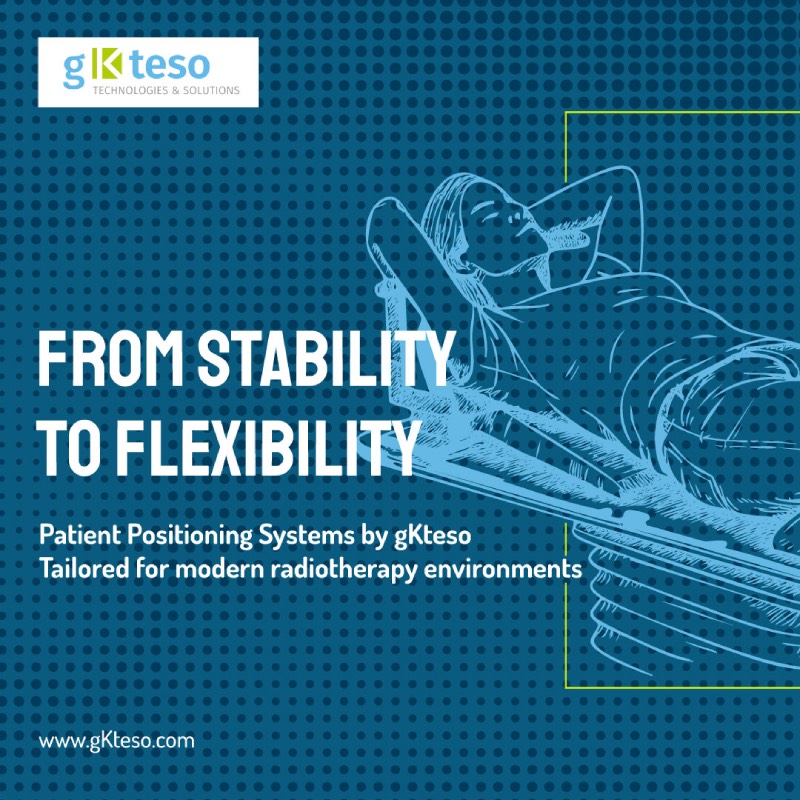
Learn more about …
Patient Positioning Systems by gKteso: Tailored for modern radiotherapy environments.
Schedule an appointment now!
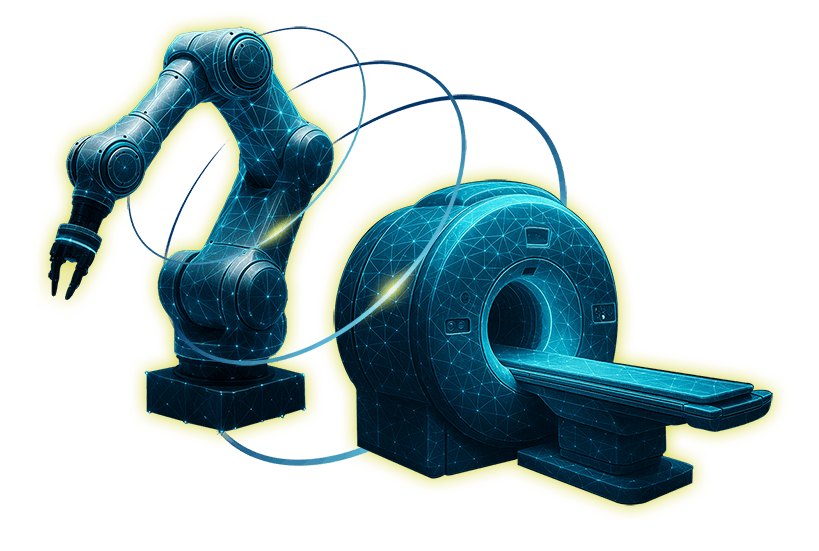
Frequently Asked Questions
What makes the RPS Mini unique in stereotactic radiotherapy?
The RPS Mini brings modern precision to existing radiotherapy systems. As a compact 6DoF add-on, it bridges the gap between conventional Linac setups and today’s image-guided treatment standards. By enabling fine patient alignment within seconds, even after CBCT imaging, it allows clinicians to deliver treatments with absolute confidence and consistency.
How does the RPS Mini improve treatment accuracy and patient safety?
Is the RPS Mini compatible with standard immobilization and radiotherapy mask systems?
Which clinical and technical environments benefit most from the RPS Mini?
What makes the RPS Mini a cost-effective solution for precision radiotherapy?
Unlike full couch replacements, the RPS Mini provides a plug-and-play upgrade path – modernizing existing treatment tables at a fraction of the cost. Its ultra-flat design (17 cm height) ensures compatibility with current systems, while intuitive controls and MDR-ready certification simplify both installation and daily operation. This combination of precision, affordability, and ease of integration delivers a high ROI for clinics and OEMs alike.
Explore more precision-driven patient systems for radiotherapy

RPS Base
The RPS Base offers full 6DoF surface-guided control for advanced radiotherapy workflows. It enables ±5° angular correction across all axes, ensuring exact isocenter alignment for every session. With its smart, Linac-ready design, it streamlines setup, improves reproducibility, and supports adaptive treatment strategies.
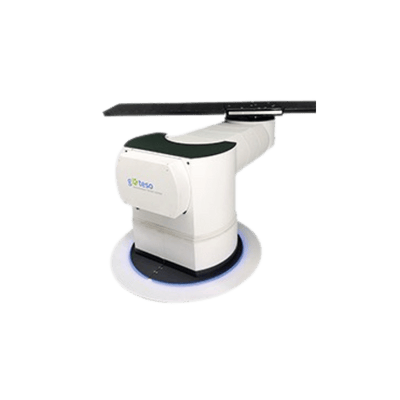
RPS Proton / BNCT Fixed Beam
The RPS Fixed Beam delivers robotic flexibility for fixed-beam proton, other particle or BNCT therapy centers. It ensures precise, reproducible positioning for both supine and seated treatments while maintaining constant isocenter geometry. Designed for cost-effective integration, it reduces infrastructure requirements and supports advanced radiotherapy workflows without a rotating gantry.
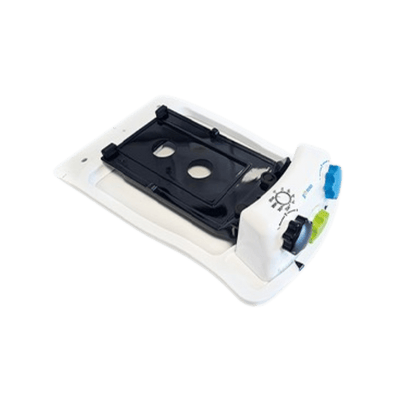
RPS HEAD
The RPS Head delivers high-precision positioning for cranial and head-and-neck radiotherapy. With integrated 6DoF motion control, it enables submillimeter correction in pitch, roll, and yaw even after the thermoplastic mask is fixed. Designed for stereotactic and image-guided workflows, it ensures stable geometry, minimizes repositioning, and supports accurate SGRT and CBCT verification throughout every treatment session.


